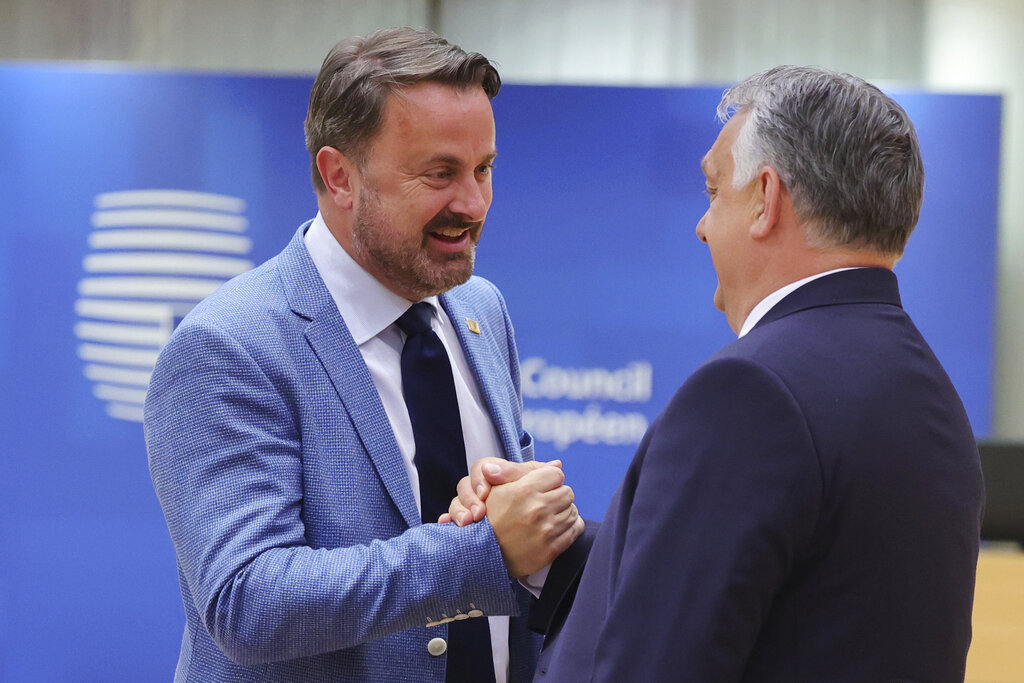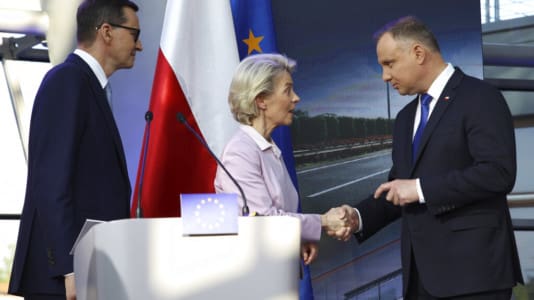An undeniable Hungarian victory was achieved on the first day of the EU summit, a fact recognized in international press and politics, although it’s no surprise they do so very reluctantly.
Dutch Prime Minister Mark Rutte, responding to a reporter’s question, emphasized that it is not a question of Hungarian Prime Minister Viktor Orbán winning, and yet he acknowledged that there is truth in what Hungary is saying about energy sanctions on Russia. Specifically, he thought that the Hungarian prime minister highlighted a real problem when he said that landlocked countries in Central Europe have no choice but to use oil pipelines, and if the European Commission’s oil embargo was implemented in its original form, this would represent a severe economic blow — and not just to Hungary.
This is a completely obvious physical reality, and yet Rutte and others are amazed at this truth simply because the liberal media and hard-line embargo politicians have completely twisted the legitimate enforcement of Hungarian interests with their fierce anti-Putin stance.
Welcome to reality, Mr. Rutte! The essence of Hungarian advocacy is to protect Hungarian interests, not Russian nor anyone else’s. Moreover, other member states may have very likely rejoiced at Viktor Orbán’s stand, even if their own leaders dared to speak only cautiously in this debate.
Leaving the first day of the deliberations, those who wanted much harsher sanctions and were already dreaming of the seventh package even before the sixth package had been adopted, were forced to make a positive statement.
The embargo eventually materialized, even if not in the way many wanted. But they cannot go home having failed personally, not to mention the EU institutions as a whole. Commission President Ursula von der Leyen, for example, is certainly not one of the winners, as it has become clear what happens when you propose such a serious step as an oil embargo without thorough consultation with the member states.
Viktor Orbán explained this to the confused foreign press before the summit: At the Versailles summit, Brussels made a commitment not to make a proposal on energy without thorough consultation, but now it has done so. The first five sanctions package involved making a decision first and then trying to deal with the consequences, but energy is a more serious issue.
Here, Hungary really had to take a stand because the union was hurtling in a very dangerous direction and without even considering the consequences. For example, they seem to be ignoring the fact that sanctions do not really work in general, especially not against a country as massive as Russia.
We have already done a lot of damage to ourselves under the leadership of Brussels, but the emergency brakes had to be applied before a total disaster. Even the British liberal outlet, The Guardian, said that the sanctions are doing more harm than good — they are not driving Russian troops out of Ukraine but instead causing a great deal of suffering, food shortages and high energy prices worldwide.
If we are talking about victory, we must not deny that Hungary has won a battle, but the war is not over. When it comes to the conflict in Ukraine, it is fortunately possible to stay out of it thanks to Hungarian diplomacy. The same cannot be said for our relationship with Brussels, where we cannot simply step aside while the European Union wages war against itself.
The Hungarian government still faces many battles ahead.





